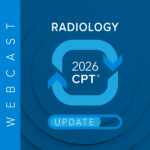Are you sick of me writing about the Medicare Change of Status Notice (MCSN) yet?
Too bad!
Many of you continue to challenge me with scenarios I did not contemplate, so I will continue to share them. Kristi in Kansas recently sent me two great ones.
The first asked about a common scenario. Say a Medicare patient is scheduled for a surgery not on the Inpatient-Only List and without high risk. The plan is for an overnight recovery and discharge home the next day. The doctor orders inpatient admission and the patient is formally admitted. After surgery, the case is reviewed and the error discovered, so a Condition Code 44 change is performed. And of course, the doctor writes an order to “change to observation.” If the patient does not have Part B, is the MCSN required?
Hopefully all of you have been listening and reading, and know the answer is “no.” Even though observation was ordered, the care the patient will be receiving, and what should be billed, is routine recovery care.
And as such, no MCSN. I would ensure that the staff document that the service provided was outpatient recovery and not observation. Now, if the discharge is delayed due to a complication or need for additional care, then observation as a service will be provided and the MCSN will be required.
The other equally fantastic question is one I actually cannot definitively answer.
Say a patient with Medicare A but not Medicare B is admitted as an inpatient. The next day, their status is changed to outpatient and observation services are delivered. But then the patient’s clinical condition worsens, they stay past the second midnight, and are admitted as an inpatient on the third day. Is the MCSN required? At first glance, the answer would be “no,” since the stay is now covered by Part A and the patient will not have to pay the whole cost.
But my first hesitation is that if the patient stays one more day and needs a skilled nursing facility (SNF) stay, the Condition Code 44 change means they lost two days for the three required inpatient days. Should they get the MCSN so they can appeal and get those days back as inpatient? I just don’t know. Also, if the hospital is a critical access hospital (CAH), there is no three-day payment bundling, so there may be additional Part B costs for the patient, so maybe the MCSN is necessary. Is it? I don’t know, and the Centers for Medicare & Medicaid Services (CMS) is not answering questions.
Switching gears, I want to go to my other favorite topic, criticizing Medicare Advantage (MA) plans. As often is the case, it is UnitedHealthcare (UHC) that is playing games.
In January, UHC updated their policy on ED visit facility billing. Many of you are aware that UHC regularly downgrades emergency department facility billing codes, using their own proprietary Optum Emergency Department Claim Analyzer. They don’t tell you they downgraded; they simply pay the claim at what they consider the correct level. (Are your staff looking for payments that do not match the contractual payment amount? If not, you should be!)
But in their updated policy, UHC states that “this policy is based on coding principles established by CMS, and the CPT and HCPCS code descriptions.” That sounds great, but what does CMS actually say?
CMS says “Until national guidelines are established, hospitals should continue using their own internal guidelines to determine the appropriate reporting of different levels of clinic and emergency department visits.” And since there are no official CPT or HCPCS code descriptions for these codes for facility billing, that means CMS guidelines still apply, and hospitals’ internal guidelines for code selection are the appropriate tool to use if they meet the CMS standards – and that means that UHC using their ED Claim Analyzer is not compliant.
Please keep following CMS guidelines, watch your payments for ED visits for these automatic downgrades, and fight them. Even their policy admits their use of the Optum tool is inappropriate.
EDITOR’S NOTE:
The opinions expressed in this article are solely those of the author and do not necessarily represent the views or opinions of MedLearn Media. We provide a platform for diverse perspectives, but the content and opinions expressed herein are the author’s own. MedLearn Media does not endorse or guarantee the accuracy of the information presented. Readers are encouraged to critically evaluate the content and conduct their own research. Any actions taken based on this article are at the reader’s own discretion.













